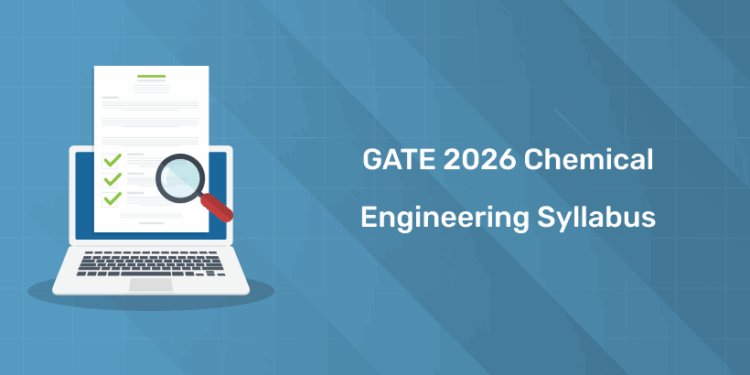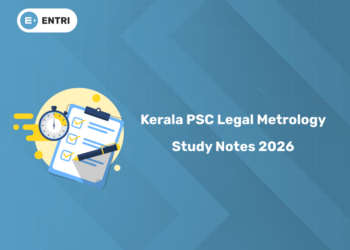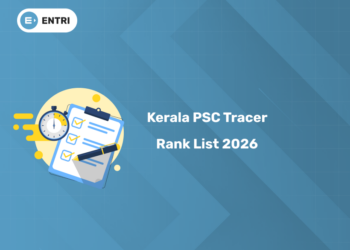Table of Contents
GATE 2026 Chemical Engineering exam is expected to be announced soon. If you’re planning to appear, now’s the time to get serious. This blog covers the complete GATE 2026 Chemical Engineering syllabus, paper pattern, marking scheme, and more. Start your preparation with a clear understanding of what to study and how to approach each section. Download the official syllabus PDF!
GATE 2026 Notification Overview
| Particulars | Details |
|---|---|
| Exam Name | GATE 2026 (Graduate Aptitude Test in Engineering) |
| Conducting Institute | IIT Guwahati |
| Exam Level | National |
| Purpose | PG Admissions (M.E., M.Tech, Ph.D.), PSU Jobs |
| Total Papers | 30 (expected) |
| Mode of Application | Online |
| Registration Start Date | August 2025 (Tentative) |
| Last Date to Apply (No Late Fee) | September 2025 (Tentative) |
| Last Date to Apply (With Late Fee) | To Be Announced |
| Exam Dates | 1st & 2nd Weekends of February 2026 (Expected) |
| Admit Card Release | January 2026 |
| Mode of Exam | Computer-Based Test (CBT) |
| Exam Duration | 3 Hours (180 Minutes) |
| Total Questions | 65 |
| Question Type | MCQ, MSQ, NAT |
| Exam Frequency | Once a Year |
| Score Validity | 3 Years |
| Official Website | iitg.ac.in |
GATE 2026 Chemical Engineering Syllabus – CH Topics
To make your preparation focused and efficient, we’ve included the official GATE 2026 Chemical Engineering syllabus PDF below. It lists all the important topics and sections you’ll need to study. Download it now and use it as your base guide while planning your subject-wise strategy.
GATE 2026 Chemical Engineering Exam Pattern
The GATE 2026 Chemical Engineering (CH) paper will have a total of 65 questions. The General Aptitude (GA) section will include 10 questions—5 questions carrying 1 mark each and 5 questions carrying 2 marks, adding up to 15 marks. The Engineering Mathematics section is compulsory and carries 13 marks.
The remaining questions will be from core Chemical Engineering topics, totaling 72 marks. The paper will include both Multiple Choice Questions (MCQs) and Numerical Answer Type (NAT) questions. Negative marking applies only to MCQs:
-
1/3 mark is deducted for every incorrect 1-mark MCQ.
-
2/3 mark is deducted for every incorrect 2-mark MCQ.
NAT questions have no negative marking.
| Paper Code | General Aptitude (GA) Marks | Chemical Engineering Topics + Engineering Mathematics | Maximum Marks | Total Time (in minutes) |
|---|---|---|---|---|
| CH | 15 | 85 | 100 | 180 |
GATE 2026 Chemical Engineering Syllabus – Detailed CH Topics
The GATE 2026 Chemical Engineering (CH) syllabus covers a wide range of core topics that reflect both theoretical and practical aspects of the discipline. It begins with Engineering Mathematics—a foundation for all analytical sections—followed by critical subjects like Process Calculations and Thermodynamics, Fluid Mechanics, Heat Transfer, and Mass Transfer. You’ll also dive into Chemical Reaction Engineering, Instrumentation and Process Control, and Plant Design and Economics, all of which play vital roles in real-world chemical engineering applications. The detailed syllabus is given below!
Engineering Mathematics
Linear Algebra: Vector space, basis, linear dependence and independence, matrix algebra, eigen values and eigen vectors, rank, solution of linear equations – existence and uniqueness.
Calculus: Mean value theorems, theorems of integral calculus, evaluation of definite and improper integrals, partial derivatives, maxima and minima, multiple integrals, line, surface and volume integrals, Taylor series.
Differential Equations: First order equations (linear and nonlinear), higher order linear differential equations, Cauchy’s and Euler’s equations, methods of solution using variation of parameters, complementary function and particular integral, partial differential equations, variable separable method, initial and boundary value problems. Vector Analysis: Vectors in plane and space, vector operations, gradient, divergence and curl, Gauss’s, Green’s and Stokes’ theorems.
Complex Analysis: Analytic functions, Cauchy’s integral theorem, Cauchy’s integral formula, sequences, series, convergence tests, Taylor and Laurent series, residue theorem.
Probability and Statistics: Mean, median, mode, standard deviation, combinatorial probability, probability distributions, binomial distribution, Poisson distribution, exponential distribution, normal distribution, joint and conditional probability.
Process Calculations and Thermodynamics
Steady and unsteady state mass and energy balances including multiphase, multi component, reacting and non-reacting systems. Use of tie components; recycle, bypass and purge calculations; Gibb’s phase rule and degree of freedom analysis. First and Second laws of thermodynamics. Applications of first law to close and open systems. Second law and Entropy. Thermodynamic properties of pure substances: Equation of State and residual properties, properties of mixtures: partial molar properties, fugacity, excess properties and activity coefficients; phase equilibria: predicting VLE of systems; chemical reactionequilibrium.
Fluid Mechanics and Mechanical Operations
Fluid statics, surface tension, Newtonian and non-Newtonian fluids, transport properties, shellbalances including differential form of Bernoulli equation and energy balance, equation of continuity, equation of motion, equation of mechanical energy, Macroscopic friction factors, dimensional analysis and similitude, flow through pipeline systems, velocity profiles, flow meters, pumps and compressors, elementary boundary layer theory, flow past immersed bodies including packed and fluidized beds,
Turbulent flow: fluctuating velocity, universal velocity profile and pressure drop. Particle size and shape, particle size distribution,size reduction and classification ofsolid particles; free and hindered settling; centrifuge and cyclones; thickening and classification, filtration, agitation and mixing; conveying of solids.
Heat Transfer
Equation of energy, steady and unsteady heat conduction, convection and radiation, thermal boundary layer and heat transfer coefficients, boiling, condensation and evaporation; types of heat exchangers and evaporators and their process calculations; design of double pipe, shell and tube heat exchangers, and single and multiple effect evaporators.
Mass Transfer
Fick’s laws, molecular diffusion in fluids, mass transfer coefficients, film, penetration and surface renewal theories; momentum, heat and mass transfer analogies; stage-wise and continuous contacting and stage efficiencies; HTU & NTU concepts; design and operation of equipment for distillation, absorption, leaching, liquid-liquid extraction, drying, humidification, dehumidification and adsorption, membrane separations (micro-filtration, ultra filtration, nanofiltration and reverse osmosis).
Chemical Reaction Engineering
Theories of reaction rates; kinetics of homogeneous reactions, interpretation of kinetic data, single and multiple reactions in ideal reactors, kinetics of enzyme reactions (Michaelis-Mentenand Monod models), non-ideal reactors; residence time distribution, single parameter model; nonisothermal reactors; kinetics of heterogeneous catalytic reactions; diffusion effects in catalysis; rate and performance equations for catalyst deactivation.
Instrumentation and Process Control
Measurement of process variables; sensors and transducers; P&ID equipment symbols; process modeling and linearization, transfer functions and dynamic responses of various systems, systems with inverse response, process reaction curve, controller modes (P, PI, and PID); control valves; transducer dynamics; analysis of closed loop systems including stability, frequency response, controller tuning, cascade and feed forward control.
Plant Design and Economics
Principles of process economics and cost estimation including depreciation and total annualized cost, cost indices, rate of return, payback period, discounted cash flow, optimization in process design and sizing of chemical engineering equipments such as heat exchangers and multistage contactors.
To prepare for GATE 2026 Chemical Engineering, start by going through each topic one by one. Begin with Engineering Mathematics as it’s used in many other subjects. Then focus on core topics like Thermodynamics, Mass Transfer, Heat Transfer, and Reaction Engineering—these are very important for scoring well. Make easy-to-revise notes, solve previous year questions, and take mock tests regularly. Don’t forget to study Process Control and Plant Design, as they can also help you earn extra marks. Stay consistent and follow the syllabus closely.









